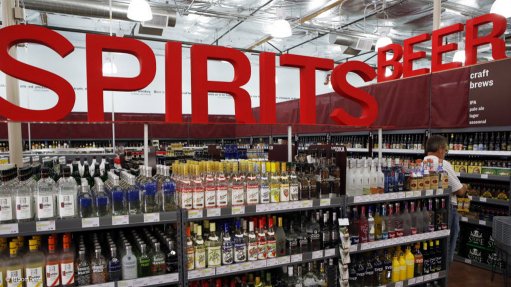
Photo by: Bloomberg
The Northern Cape Liquor Board does not have the necessary capacity to regulate the liquor industry in the province. This sad fact is made very clear in the recent tabling of the entity’s annual reports for 2012/13 and 2013/14. It is not a regulatory entity, but a rubberstamping entity.
It is a matter of extreme concern that the chairperson of the portfolio committee on Finance and Economic Development arbitrarily prevented the DA from posing questions on licenses granted without due procedures being followed by the Board. What benefit does the chairperson derive from preventing the DA from asking inconvenient or uncomfortable questions to the Board? Is there a fear that the DA will expose wrongdoing better left unexamined? The DA will be taking appropriate action in this regard.
In fact, the DA notes that the Board has, in some instances, granted liquor licenses notwithstanding objections from the Community Policing Forums (CPF’s) and Designated Police Officers and the fact that liquor outlets are in close proximity to schools and places of worship. The chairperson of the Board is on record saying that the Northern Cape Liquor Act does not stipulate what the distance should be between the liquor outlet and the schools or places of worship. This is laughable to say the least.
In the 2012/13 financial year, out of 728 permanent liquor licence applications considered, 80% were granted. In the same period, 357 occasional liquor licenses were approved by the Board. Why this high rate of success of applications for liquor licenses? In 2013/14, out of a total of 695 applications for permanent liquor licenses considered, 489 liquor licenses were approved. During the period under review, out of 436 occasional liquor licenses considered, 375 occasional liquor licenses were approved. Applications for occasional liquor licenses have largely been abused by mushrooming “Chesa nyamas” in Galeshewe and this can also be attributed to political connectivity to the ANC. The ANC held election parties at some of these outlets this year. In fact, the Board has encouraged Colour Block Chesa nyama to apply for a permanent liquor license. This is just a formality, as we know this license will be approved. The DA will be following the application process with interest.
Of course the Board does not bear the brunt of the high consumption of alcohol in the province. It is the Departments of Health, Social Services, South African Police Service and the society at large that suffer the consequences of the oversupply of alcohol.
The audit outcome for the 2012/2013 financial year reveals the Board failed to comply with the PFMA. For example, the Board did not take effective steps to prevent irregular, fruitless and wasteful expenditure as required by the PFMA. The effective and appropriate disciplinary steps have also not been taken against the officials who permitted the irregular, fruitless and wasteful expenditure in contravention of the PFMA.
The audit outcomes of the entity reveal serious problems. As of 31 March 2014, the entity’s liabilities exceeded its assets by R123 612. Debt has increased with 49% since the previous year. In the absence of a supply chain management unit, irregular expenditure of more than R200 000 was incurred. The Auditor-General also raised concerns about the poor quality of reporting. Unless the Board becomes serious about the task of regulating the liquor industry in the province, we will continue to see these negative outcomes for years to come.
Issued by DA